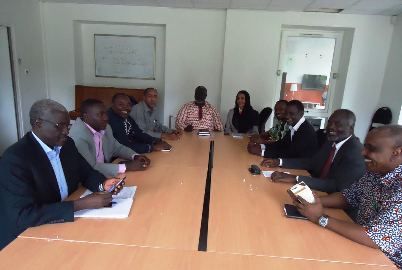SRF rebels resolved to unify Sudanese opposition forces
October 8, 2014 (KHARTOUM) – The rebel umbrella of the Sudan Revolutionary Forces (SRF) said it seeks to unify opposition forces in a broad strategic coalition, including the alliance of the National Consensus Forces (NCF) and other political forces to overthrow the regime and prevent holding of the 2015 general election.

However the National Umma Party (NUP) suspended its membership in the NCF while the Popular Congress Party jointed the national dialogue mechanism and quitted the opposition alliance which refuses to participate in the internal process asking to implement a number of measures aiming to create a conducive environment and to postpone the 2015 election .
The SRF’s secretary of external affairs, Yasir Arman, said in statements released on Wednesday, that the Sudanese regime derives its strength from the weakness of the opposition, underscoring that unification of the opposition work is a prerequisite to restore the political balance of power between the regime and its opponents.
He warned the regime would exert every possible effort to prevent agreement of political forces on a new national scheme similar to that which took place in the Eritrean capital of Asmara in 1995, pointing that “unity of opposition is imperative in order to build a new Sudanese state that is founded on citizenship without discrimination”.
Arman saw the regime is carrying out a large campaign to divide the opposition forces, urging the latter not to discuss controversial issues through the media.
“The NCF is a strategic ally of the SRF and this is not mere words but [ties] were tested in many situations including [our joint] position towards the [government-led] national dialogue”, he added.
He stressed that the National Umma Party (NUP) and the Unionist Movement (UM) are important and effective components of the opposition and must be included in the opposition work, noting the SRF does not support formation of new opposition alliances but seeks to unify the existing ones.
Last week, NCF’s chairman, Farouk Abu-Issa, accused the NUP and some members of the SRF of attempting to form a new alliance under the name of the “National Front for Change”, describing it as an attempt to weaken the major opposition alliance, the NCF.
The SRF official acknowledged previous disagreements among opposition forces, underscoring the need to unify Paris Declaration signatories and NCF besides other forces as well as finding a flexible and effective formula to accommodate civil society organisations including youths, students and woman groups and trade unions.
“The ongoing [media] fights are pointless because our interests must unite us”, he added.
On 8 August, the SRF and the NUP signed the Paris Declaration which calls for a comprehensive process including rebel groups to end war and bring democratic transformation in the country.
Arman pointed to contacts with the NCF leadership including Abu Issa and the leader of the Sudanese Congress Party (SCoP), Ibrahim al-Shiekh, and other leaders as well as ongoing contacts with the Democratic Unionist Party (DUP) led by Mohamed Osman al-Merghani and other unionist factions.
He said the SRF, in a meeting in Berlin last week, decided to adopt a clear political position to unify opposition forces and avoid engaging in any form of contest.
Arman denied existence of deep differences between the SRF and Ba’athist parties, saying they seek to engage in a serious and genuine dialogue with them.
“The two forces [SRF and Ba’athist] face significant intellectual and political challenges and they must meet these challenges through a productive and deep dialogue which contributes to advancement of political life and unity of Sudanese national forces”, he added.
The rebel leader emphasised that Paris Declaration signatories adopted mechanisms to change the regime including the popular uprising, armed struggle, international solidarity, emphasising that the peaceful solution is their preferred mechanism.
He called upon political forces, civil society organisations and forces of change to prevent holding the upcoming election and utilise the occasion to mobilise for a peaceful uprising to overthrow the regime.
“We sought to meet with all political forces to prevent holding the election and form the broadest possible opposition front to overthrow the regime”, he said.
He pointed that al-Merghani and the Popular Congress Party (PCP) led by Hassan al-Turabi besides important segments of the Islamists refuse to engage in the election before the completion of the national dialogue and the constitutional process.
Arman further described claims made by the ruling National Congress Party (NCP) that election is a constitutional requirement as “ridiculous joke”, saying the latter in the past postponed the 2010 election in agreement with the Sudan People’s liberation Movement (SPLM).
The NCP rejects calls by all the Sudanese political forces to postpone the general election scheduled for April 2015 until after the national dialogue and formation of a transitional government, saying it is a constitutional requirement that must be met.
The SRF official doubted the possibility of launching an alliance between the PCP and the NCP, saying the latter does not value the concessions made by the PCP.
He noted the PCP understands that unity of the Islamists and persecution of other political forces ripped off the Islamic Movement (IM) as it did to Sudan prior to that, adding it will be unwise to repeat the same failed experience.
“We think the PCP made a huge mistake [by agreeing to participate in the government-led dialogue] and it will pay for this mistake because the regime is not ready to offer “leftovers” to others. The NCP is not a one-party regime but a one-man regime and it does not even allow its partners and friends a little room for political action”, he said.
(ST)
